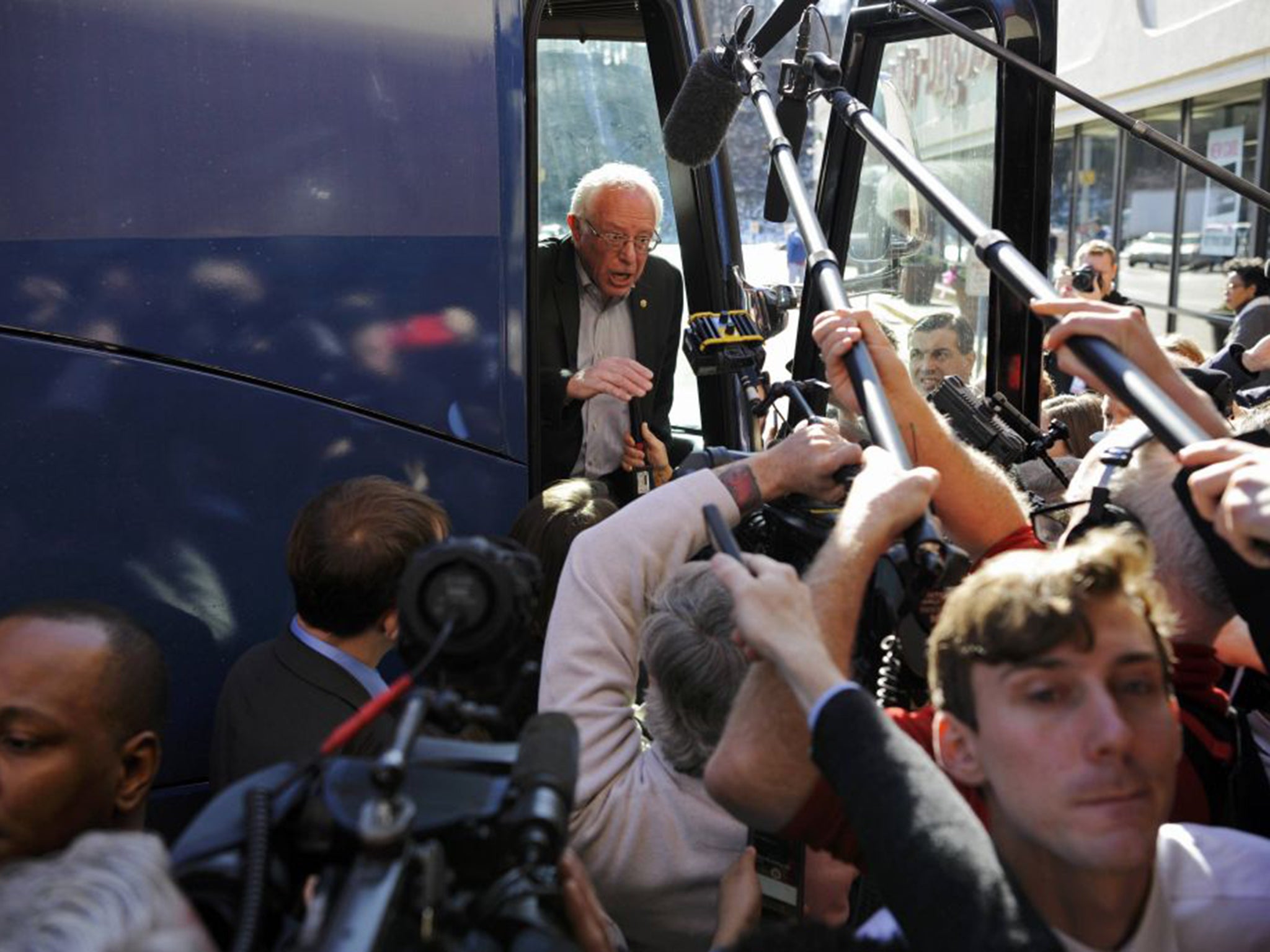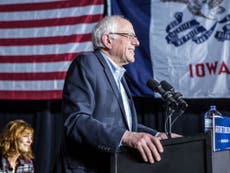Whether we want him to or not, Bernie Sanders - like Corbyn - can't survive the realities of running a country
Sanders' success is indicative of a bigger shift in the Democrat party, which is moving to the left. But as far as getting things done in DC goes, Hillary Clinton still seems to have the edge

Bernie Sanders was virtually unknown outside Vermont before announcing his candidacy for President of the United States in late May 2015. Nine months on, the self-declared Democratic Socialist attracts swathes of youth at rallies around the country and is threatening to usurp the Democratic presidential nomination from party stalwart and former Secretary of State Hillary Clinton.
Sanders is a 74-year-old senator from Vermont, a state in the country’s northeast, and though he is running for the Democratic nomination, he’s spent his long political career as an independent.
His participation in the Democratic primary is initially thought to have been simply a way to pull Clinton’s candidacy to the left.
“Sanders wanted to make sure Hillary Clinton didn’t waltz to the nomination without addressing the questions of progressives,” Donna Hoffman, a professor of American politics and elections at the University of Northern Iowa, said.
His success has taken many Americans by surprise, however, particularly due to his self-identification as a Democratic socialist, a seditious term in the lexicon of American politics.
Many analysts still believe his stance would prevent him from winning the general election. His politics are radically leftist by American standards, as his platform calls for polices including universal, single-payer healthcare, free university, and raising taxes.
“We call him a socialist and he might be on the American political spectrum,” said Simon Marks, a British journalist who has spent the last 24 years in America and is covering his sixth presidential campaign, “but he’s not a European socialist.”
A better term for Sanders may be the same one used for Labour’s Jeremy Corbyn – populist. Much like Corbyn, Sanders’ rise is largely down to a grassroots movement that has unsettled his party’s establishment. Sanders and Corbyn are both career politicians with unwavering ideologies that fall to the left of their party’s traditional talking points. They both draw much of their support from people under 30 and even struggle with the same demographics in their respective parties, which is mainly the BME vote.
The Sanders and Corbyn phenomena differ though in what they represent for their respective parties. Whereas Corbyn’s leadership position could lead to a split in Labour, Sanders’ success is more indicative of a shift in the Democratic Party.
“The Democrat party is moving to the left and Republicans are moving to the right,” said Ron Fournier, a senior political columnist at the National Journal, a political magazine based in Washington, D.C. This shift has opened up space for a candidate on the far left, Fournier said. “A lot of young people’s ideals are mostly aligned with the Democrats but like most Americans they don’t fit well into the party so they are creating their own movement.”
Hillary Clinton’s net worth is $25 million compared to Sanders’ $500,000, according to CNN. $48 million of the $163.5 million Clinton’s campaign has raised so far is through a Super PAC, a committee that raises money from corporations and other outlets for a political candidate. Sanders’ $75.1 million has come entirely from grassroots donations, granting him a level of credibility not shared by Clinton when discussing issues like putting limits on Wall Street and breaking up big banks.
For Sanders’ supporters, Clinton represents a political establishment that has failed them. Many also see Clinton as less liberal than current President Barack Obama, whose presidency has garnered mixed results for leftists. Obamacare and marriage equality are now realities in America, but issues like college loan debts – some reaching as high as hundreds of thousands of dollars - and the power of major financial institutions has been largely unaffected under Obama’s presidency.
“Sanders is not Obama,” Hoffman said. “There’s the same optimism of wanting change but progressives became disillusioned with Obama, not because of him but promises and expectations were extraordinarily high [when he came to office.]”
Buoyed by Sanders’ focus on big banks, and his steadfast dedication to financial issues largely concerning America’s 20-somethings, the wispy-haired senator personifies the reaction to the left’s growing anger at the power brokers in Washington.
“There’s this radical anger and with new technology that means much more robust populism on the far left and the far right,” said Fournier. “Some are particular to Sanders because he comes across as authentic, and he is.”
Sanders is putting up a strong showing against Clinton in the early primaries. But the notion that Sanders’ policies are too radically leftist to win a general election hasn’t changed. Even if he were to get past Hillary in the primaries and fend off the Republican challenger to be elected president, Hoffman believes Sanders would quickly encounter the divided political atmosphere of Washington, DC, much like Obama did during his tenure in office.
“Bernie Sanders wants free college and national (single-payer) health care and that’s not going to happen,” she said. “The president can’t do that. People forget the reality of the political system. Obama ran into it. DC is DC and reality doesn’t fit the rhetoric.”



Join our commenting forum
Join thought-provoking conversations, follow other Independent readers and see their replies